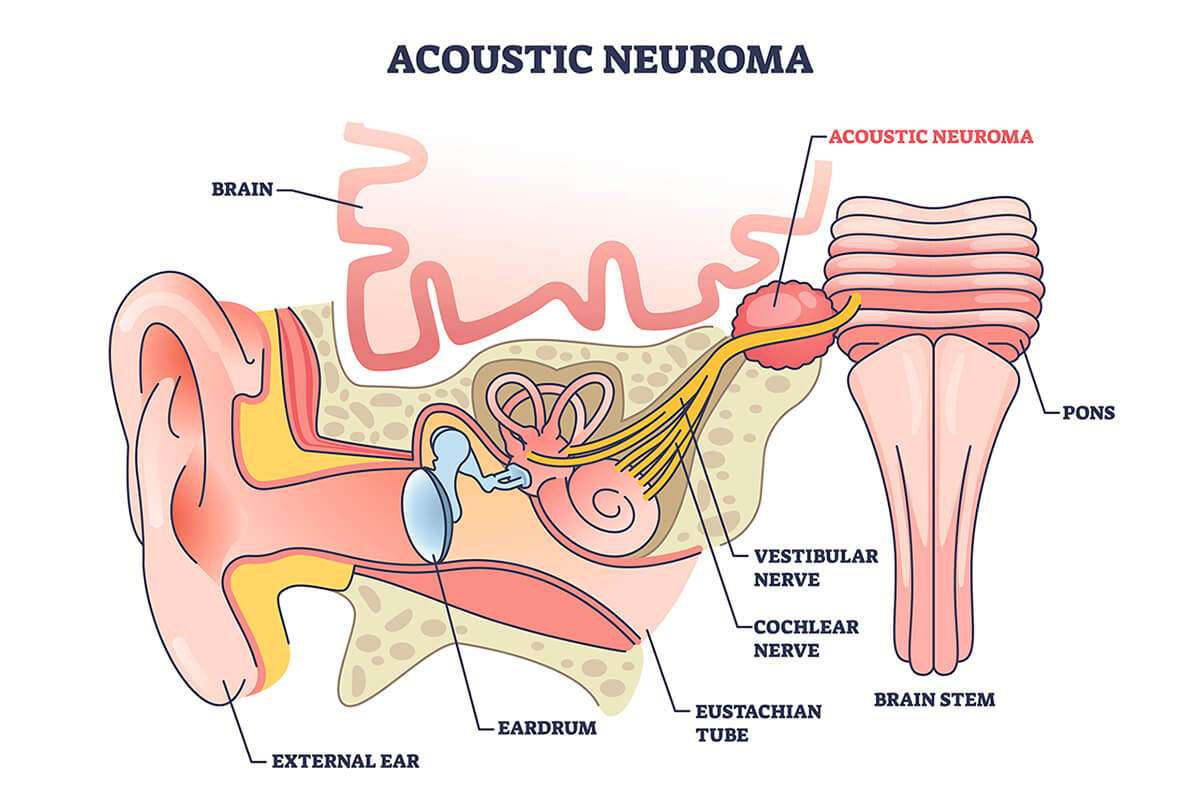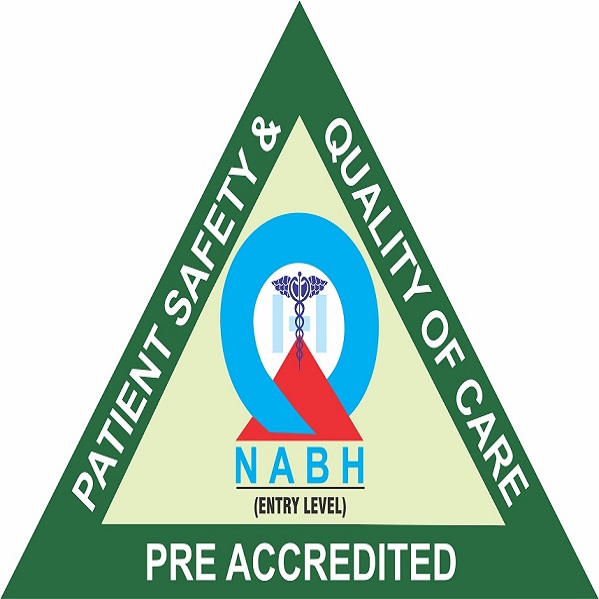Unpacking Acoustic Neuroma: Understanding Symptoms, Diagnosis, and Treatment Options – by Dr. S. R. Agrawal, ENT Surgeon
Introduction: Acoustic neuroma, also known as vestibular schwannoma, is a rare noncancerous tumor that develops on the nerve responsible for balance and hearing—the vestibular cochlear nerve. While these tumors are generally benign, they can lead to significant health issues if left untreated. In this article, we will delve into the symptoms, diagnosis, and treatment options for acoustic neuroma, providing valuable insights into this condition. Dr. S. R. Agrawal, a renowned ENT surgeon, shares his expertise to help you understand and navigate the complexities of acoustic neuroma.

Understanding Acoustic Neuroma: Dr. Agrawal explains that acoustic neuromas arise from the Schwann cells that line the vestibular cochlear nerve. Although the exact cause of their development remains unclear, certain factors may increase the risk, such as:
- Genetic Factors: Some individuals may inherit a gene that predisposes them to the development of acoustic neuromas.
- Radiation Exposure: Previous radiation treatments to the head or neck region may increase the risk of acoustic neuroma.
Symptoms of Acoustic Neuroma: The symptoms of acoustic neuroma can vary depending on the size and location of the tumor. Dr. Agrawal highlights the following common symptoms:
- Hearing Loss: The most prominent symptom of acoustic neuroma is gradual or sudden hearing loss in one ear. This hearing loss may be accompanied by a feeling of fullness or ringing in the affected ear, known as tinnitus.
- Balance Issues: Acoustic neuromas can cause balance problems, such as unsteadiness, difficulty walking straight, or frequent falls. Vertigo, characterized by a spinning sensation, is also a common symptom.
- Facial Numbness or Weakness: Larger tumors can exert pressure on the facial nerve, resulting in numbness or weakness on one side of the face.
- Headaches and Dizziness: Some individuals may experience persistent headaches or dizziness, which can be attributed to the presence of an acoustic neuroma.
Diagnosis and Treatment Options: Early diagnosis of acoustic neuroma is crucial for effective treatment. Dr. Agrawal outlines the following diagnostic and treatment options:
- Physical Examination and Medical History: A thorough examination of the ear, nose, and throat, along with a review of the patient’s medical history, helps in assessing symptoms and identifying potential risk factors.
- Audiometry and Imaging Tests: Audiometric tests, such as pure-tone audiometry and speech audiometry, evaluate the extent of hearing loss. Imaging tests like MRI (magnetic resonance imaging) or CT (computed tomography) scans help visualize the tumor and determine its size and location.
- Observation: Small acoustic neuromas that are not causing significant symptoms may be closely monitored through regular imaging tests. This approach is suitable for older patients or those with underlying medical conditions that make surgical intervention risky.
- Surgical Removal: Surgical intervention is often recommended for larger or symptomatic tumors. The specific surgical procedure depends on the tumor’s size and location. Techniques like microsurgery or radiosurgery, such as the Gamma Knife procedure, may be employed to remove or shrink the tumor.
- Rehabilitation and Support: Following treatment, rehabilitation and support play a crucial role in helping patients regain their balance, hearing, and overall quality of life. This may involve physical therapy, hearing aids, or cochlear implants, depending on the individual’s needs.
Conclusion: Acoustic neuroma is a complex condition that requires specialized medical attention. Understanding the symptoms, seeking early diagnosis, and exploring appropriate treatment options are essential for managing this condition effectively. Dr. S. R. Agrawal, an experienced ENT surgeon, has provided valuable insights into acoustic neuroma, shedding light on its symptoms, diagnosis, and treatment options. Remember, timely intervention and ongoing support can greatly contribute to a successful outcome and improved quality of life for individuals with acoustic neuroma.
For more info. please visit : https://www.ahrihospital.com/



